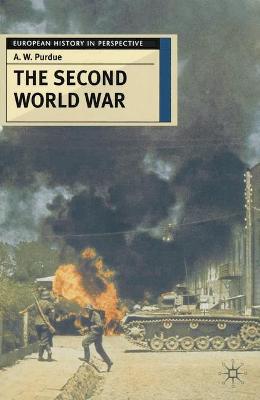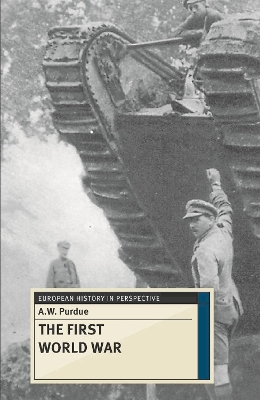European History in Perspective
2 total works
The Second World War ended the Nazi domination of Europe and Japanese aggression in the Asian Pacific but created two superpowers and another world crisis, the only recently concluded "Cold War". What were the causes of this, the second major conflagration in 20 years? How did the war progress, and could the Axis powers have succeeded? What were the consequences of a conflict that cost the lives of 53 million people, left many countries devastated and led to the creation of a bi-polar world? This study provides a fresh assessment of the entire course of World War II, covering both the European and the Asian-Pacific conflicts, and argues that the combination of a hard-won victory and the onset of the Cold War provided a frozen perspective of "winners' history", which has endured until the collapse of the Soviet Union and the reunification of Germany. The author reassesses the war, fully engaging with scholarly research, and critically analyzes the key debates, including whether the war was, along with World War I, a "Thirty Years War", the responsibility of Adolf Hitler, the significance of ideology and the extent of opposition to Hitler's "New Order".
This is a timely new study of the Great War, a hundred years on. The First World War not only provides an invaluable introduction to the topic but also deals with the changing perspectives of, and attitudes towards, the war and its place in national and international memories.
This clear and concise volume demonstrates the strategies of the combatants, the changing nature of warfare, the failures and achievements of military commanders and the impact of new weaponry. It leads you through the debates surrounding the war, from its causes through to its consequences, looking at the subject from a 21st century perspective. Rather than simply focusing on military history, Purdue pulls in strands of the diplomatic, political and economic dimensions of conflict, making this an ideal introduction to the First World War for both students and general readers.
This clear and concise volume demonstrates the strategies of the combatants, the changing nature of warfare, the failures and achievements of military commanders and the impact of new weaponry. It leads you through the debates surrounding the war, from its causes through to its consequences, looking at the subject from a 21st century perspective. Rather than simply focusing on military history, Purdue pulls in strands of the diplomatic, political and economic dimensions of conflict, making this an ideal introduction to the First World War for both students and general readers.

